Filter by
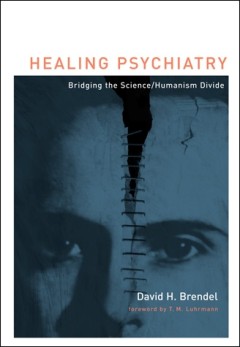
Healing psychiatry : bridging the science/humanism divide
A new patient-centered approach to psychiatry that aims to resolve the field's conceptual tension between science and humanism by drawing on classical American pragmatism and contemporary pragmatic bioethics. Psychiatry today is torn by opposing sensibilities. Is it primarily a science of brain functioning or primarily an art of understanding the human mind in its social and cultural context? C…
- Edition
- -
- ISBN/ISSN
- 9780262269247
- Collation
- 1 online resource (xxii, 178 pages).
- Series Title
- -
- Call Number
- 610 BRE h
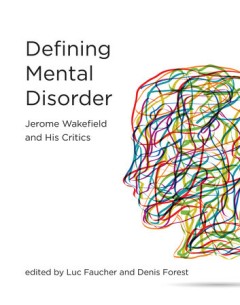
Defining mental disorder : Jerome Wakefield and his critics
"Grapples with the legacy of Jerome Wakefield, one of the most influential critics of modern psychiatry and the use of the DSM for psychiatric diagnosis"--OCLC-licensed vendor bibliographic record.
- Edition
- -
- ISBN/ISSN
- 9780262362931
- Collation
- 1 online resource.
- Series Title
- -
- Call Number
- -
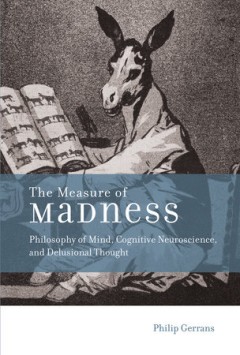
The measure of madness : philosophy of mind, cognitive neuroscience, and delu…
This title offers a novel explanation of delusion. Over the last two decades, philosophers and cognitive scientists have investigated explanations of delusion that interweave philosophical questions about the nature of belief and rationality with findings from cognitive science and neurobiology. The book argues that once we fully describe the computational and neural mechanisms that produce del…
- Edition
- -
- ISBN/ISSN
- 0262320975
- Collation
- 1 online resource (xxiv, 274 pages).
- Series Title
- -
- Call Number
- -
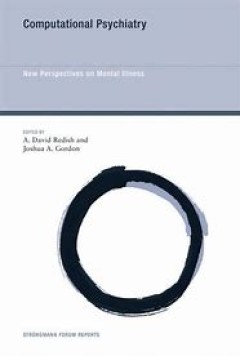
Computational Psychiatry: New Perspectives on Mental Illness
Psychiatrists and neuroscientists discuss the potential of computational approaches to address problems in psychiatry including diagnosis, treatment, and integration with neurobiology."Modern psychiatry is at a crossroads, as it attempts to balance neurological analysis with psychological assessment. Computational neuroscience offers a new lens through which to view such thorny issues as diagno…
- Edition
- -
- ISBN/ISSN
- 9780262337854
- Collation
- 1 online resource.
- Series Title
- -
- Call Number
- -

Handbook of Consultation-Liaison Psychiatry
This updated resource refines and expands on both the core concepts and the real-world practice of consultation-liaison psychiatry in medical settings. New and revised chapters provide background and basics and describe CL psychiatry approaches to managing a wide array of common conditions, including heart disease, dementia, anxiety and depressive disorders, alcohol and substance use problems, …
- Edition
- -
- ISBN/ISSN
- 978-3-319-11004-2
- Collation
- XVI, 561
- Series Title
- -
- Call Number
- 150 HAN

?A?sf?uriyyeh :a history of madness, modernity, and war in the Middle East
OCLC-licensed vendor bibliographic record.
- Edition
- -
- ISBN/ISSN
- 9780262361170
- Collation
- 1 online resource (344 p.)
- Series Title
- -
- Call Number
- -

Mad by the millions :mental disorders in the age of world citizenship, expert…
"How mental disorders became comparable worldwide through the making of metrics, focussing on the WHO's first international social psychiatry project"--OCLC-licensed vendor bibliographic record.
- Edition
- -
- ISBN/ISSN
- 9780262363013
- Collation
- 1 online resource.
- Series Title
- -
- Call Number
- -

Break on through :radical psychiatry and the American counterculture
OCLC-licensed vendor bibliographic record.
- Edition
- -
- ISBN/ISSN
- 9780262354486
- Collation
- 1 online resource (224 pages) :illustrations
- Series Title
- -
- Call Number
- -

Psychiatry in the scientific image
An analysis of the understanding, classification, and explanation of mental disorders that proposes that psychiatry adopt the best practices of the cognitive sciences.In Psychiatry in the Scientific Image, Dominic Murphy looks at psychiatry from the viewpoint of analytic philosophy of science, considering three issues: how we should conceive of, classify, and explain mental illness. If someone …
- Edition
- -
- ISBN/ISSN
- 0262517442
- Collation
- 1 online resource (xi, 410 pages) :illustrations.
- Series Title
- -
- Call Number
- -
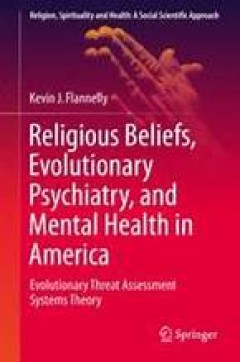
Religious Beliefs, Evolutionary Psychiatry, and Mental Health in America
This book provides a new perspective on the association between religious beliefs and mental health. The book is divided into five parts, the first of which traces the development of theories of organic evolution in the cultural and religious context before Charles Darwin. Part II describes the major evolutionary theories that Darwin proposed in his three books on evolution, and the religious, …
- Edition
- 1
- ISBN/ISSN
- 978-3-319-52488-7
- Collation
- Kedokteran
- Series Title
- Religion, Spirituality and Health: A Social Scientific Approach
- Call Number
- 617
 Computer Science, Information & General Works
Computer Science, Information & General Works  Philosophy & Psychology
Philosophy & Psychology  Religion
Religion  Social Sciences
Social Sciences  Language
Language  Pure Science
Pure Science  Applied Sciences
Applied Sciences  Art & Recreation
Art & Recreation  Literature
Literature  History & Geography
History & Geography